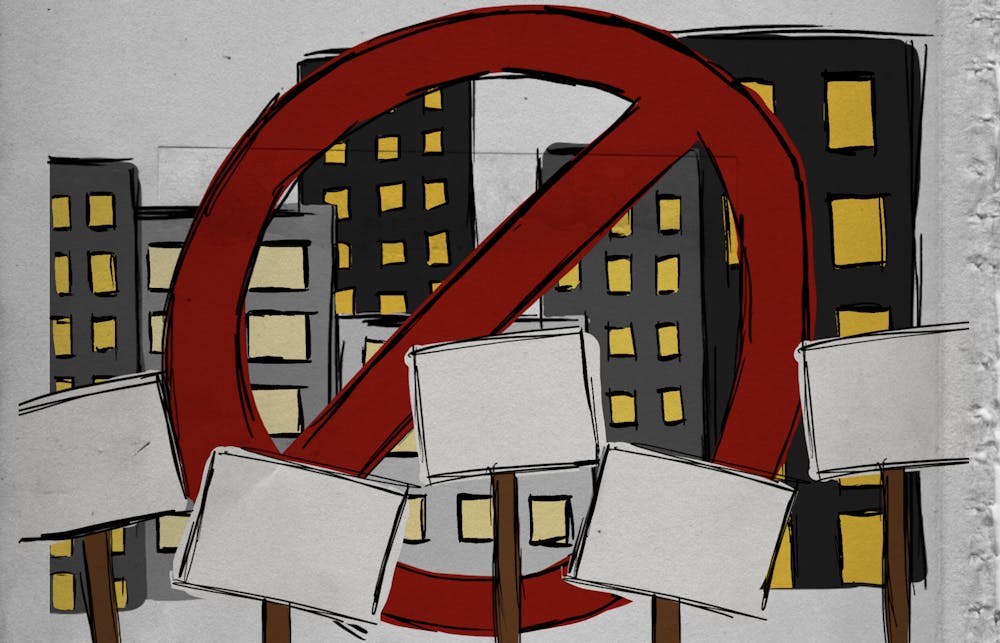The idea that Chapel Hill, along with most of the United States, is in the midst of a housing crisis has been established time and time again over recent years. But how to resolve this crisis is still up for debate.
The national conversation surrounding housing has become increasingly dominated by some assumed truths regarding the housing and rental market, the foremost being that there aren't enough homes to go around.
While this assumption is fair, when considering the 28:1 ratio of vacant homes to unhoused people nationwide, it can be argued that the problem stems from people's inability to access the homes we have rather than an actual lack of them.
Two major rival factions have arisen from this discourse: NIMBYs (Not In My Backyard) and YIMBYs (Yes In My Backyard) — the Montagues and Capulets of the American housing crisis.
NIMBYs are homeowners and renters who object to any form of urban development that might drive down their respective property values, including developments that YIMBYs tend to advocate for.
As owner-occupiers, they are comparable to a kind of petty bourgeoisie insofar as their private interests are concerned. To most NIMBYs, homes are investments — capital.
Naturally, the preservation of such investments takes precedence above all else, including projects that may or may not be beneficial to low-income communities.
Such a mindset has led to some reactionary sentiments prevailing among the traditionally white and affluent NIMBY crowd.
That isn’t to say the YIMBY position is any more righteous, no matter how much it pretends to be.




